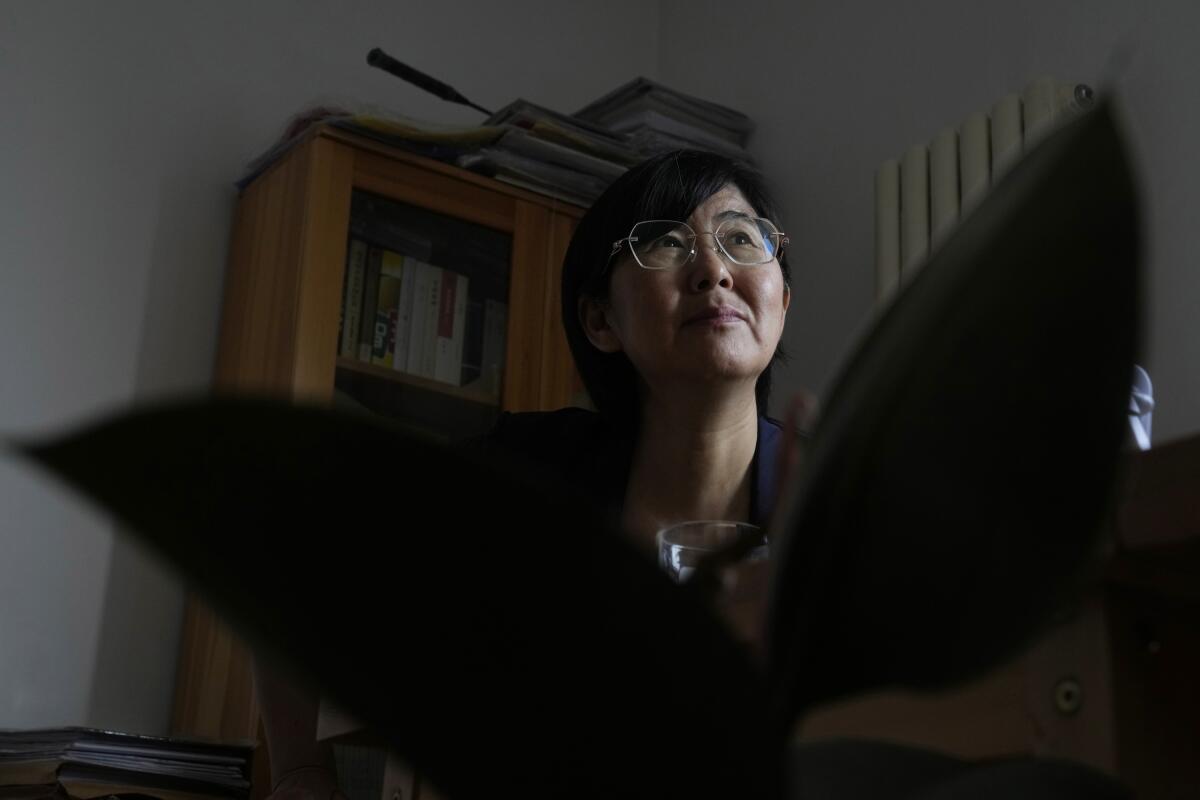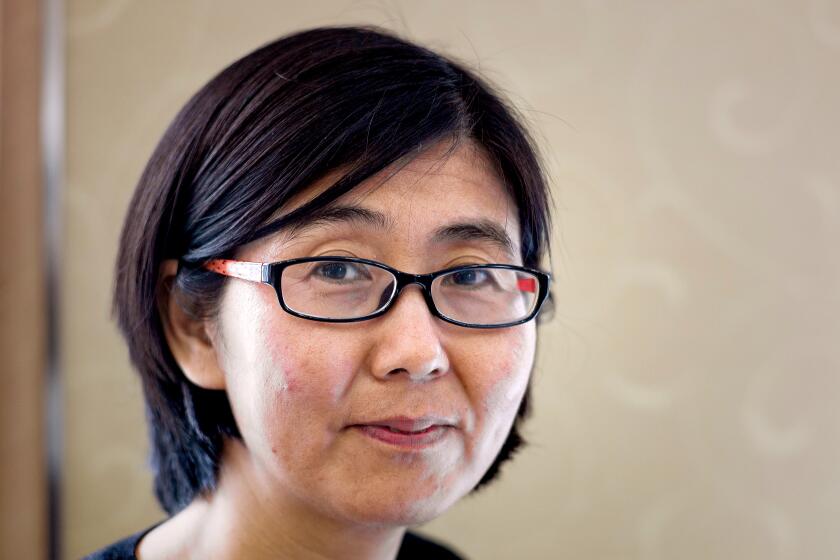China’s COVID health apps being used for social and political control, activists say

- Share via
TAIPEI, Taiwan — Wang Yu, hailed by the U.S. as an International Woman of Courage, has already been arrested, imprisoned and harassed by the Chinese Communist Party for her work as a human rights lawyer representing activists, Uyghur scholars and Falun Gong practitioners. Now, her movements within her home country have been restricted by a color-coded app on her phone that’s supposed to protect people from COVID-19.
The app and its color codes have become ubiquitous in China as the country has struggled to contain the coronavirus, pushing the public to a breaking point that resulted in protests over COVID restrictions late last month. The government announced last week that it would discontinue the national color-coded health app, but cities and provinces have their own versions, which have been more dominant. In Beijing last week, restaurants, offices, hotels and gyms were still requiring approved color codes to enter.
Some dissidents and activists predict that the health apps will remain in some form even after COVID lockdowns end.
Drawing on telecommunications network data and PCR test results, the app is relatively simple. Everyone is assigned a QR code on their phone that switches between green, yellow and red, depending on factors such as whether they’ve been in the same spot as someone who has tested positive for COVID-19 (yellow) or if they themselves have tested positive (red). Only people with green codes can go about normal daily life.
Wang’s experience, however, shows that the codes can become another tool of social control in China.
In March, she traveled to Datong, an industrial coal-mining hub about 215 miles west of Beijing, to offer counseling. While largely prevented from practicing law in China, she said she still provides advice as a “citizen advocate” on human rights cases.
Human rights lawyer Wang Yu made a forced confession in prison so her son could leave China. He arrived in Los Angeles and was held in a desert prison.
The trip required downloading a separate local health app. While most people have had two codes, a national one and one for the city or province they live in, people who travel often need yet another app for the place they’re visiting. Without it, they can’t enter a mall, restaurant or even book a hotel.
The day after Wang arrived in Datong, she said her local code turned yellow, which meant she would have to be centrally quarantined in a hotel.
“How did it suddenly become yellow?” she asked. “I didn’t have a cough or any symptoms.”
Wang wanted to get home before being quarantined, which could have lasted a few weeks. She bought a train ticket. After presenting her case for hours, submitting three negative PCR tests and her body temperature, she said the government official on the phone relented. “Why don’t I change your code to green?” the official said.
First-time protesters in China grapple with how much agency they can wrest from an authoritarian government after the largest demonstrations since 1989.
Ten minutes later, the app turned green, and the pandemic-prevention workers at the station allowed Wang to leave Datong, she said.
“To some extent, it’s become an electronic handcuff,” said Wang Quanzhang, another human rights lawyer, who is not related to Wang Yu. He said he and another passenger ran into similar travel issues in January while flying from the central city of Wuhan to Beijing.
Wang Quanzhang said he eventually resolved the issue after calling a local Wuhan government hotline, complaining to airport staff and posting on Weibo.
Meanwhile, in August, two months ahead of the 20th Chinese Party Congress, Wang Yu said her Beijing health app stopped working properly, despite her testing negative for the coronavirus. At turns, it became red or got stuck on a pop-up window.
News Alerts
Get breaking news, investigations, analysis and more signature journalism from the Los Angeles Times in your inbox.
You may occasionally receive promotional content from the Los Angeles Times.
With places in Beijing then requiring a green health code to even enter a park, Wang decided to leave the capital for her parents’ home in Inner Mongolia. She said she waited out the political meeting, thinking that her app issues might have been designed to keep her away. She kept calling Beijing government hotlines to get her code back to normal, and in late November, it turned green once again.
Beijing police and the Beijing Municipal Health Commission did not respond to requests for comment on Wang’s case.
“The strongest feeling is that I have no freedom,” Wang said.
More to Read
Sign up for Essential California
The most important California stories and recommendations in your inbox every morning.
You may occasionally receive promotional content from the Los Angeles Times.















